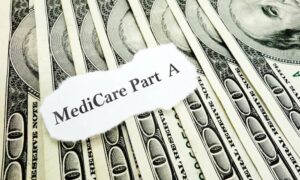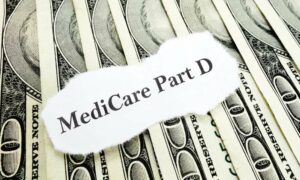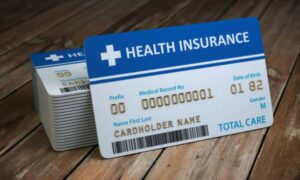You can qualify for Medicare coverage in several ways, but the most common determinant of eligibility is Medicare eligibility age. For most people, you will become eligible for Medicare when you turn 65. However, it is not always as straightforward as that there are other eligibility criteria that you must meet in addition to turning 65 in order to enroll in Medicare. They include the following:
· You either receive or qualify for Social Security retirement cash benefits or
· Currently reside in the United States and are either: A U.S. citizen or a permanent U.S. resident who has lived in the U.S. continuously for five years before applying
It is essential to understand that when it comes to the turning 65 age rule for Medicare eligibility, the determination made is based on your age as an individual. You don’t become eligible because your spouse turns 65. There is no family, household, or other group criteria applied; it is only when you as an individual turn 65 that you become eligible as an individual. This would be your initial enrollment period. It is not tied to when you elect your Social Security benefits.
Medicare Age Eligibility For Those Still Working With Employer Coverage
So what happens if you are still working and are covered by an employer-provided health plan when you turn 65? When should your Medicare benefits start? The answer and what you may need to do depends on the size of the employer you work for as Medicare has different rules for companies with fewer than 20 employees and employers with over 20 employees. Make sure you take to your employer’s benefits representative or Human Resources department to find out which applies to you if you are not sure. Depending on the employer’s size, you may be able to delay Part A and Part B without having to pay the penalty if you enroll later.
If your employer has fewer than 20 employees
You should sign up for Part A and Part B when you’re first eligible. In this case, Medicare is primary, which means they pay before your employer group insurance does. If you don’t enroll when you first become eligible, you may have to pay a Part B late enrollment penalty, and you could end up with a gap in coverage if you decide later that you want Part B.
If your employer has 20 or more employees
If you work for an employer of this size and they provide an employer plan creditable health care coverage (ask if you are not sure), you may be able to delay enrolling in Part A and Part B and won’t have to pay the Medicare late enrollment penalty if you enroll later. That is because, for employers with greater than 20 employees, the health insurance your company provides is primary and does not coordinate with Medicare.
No matter which scenario applies to you, if you enroll in Medicare, you should stop contributing to your Health Savings Account (HSA) at least six months before applying for Medicare to avoid potential tax penalties.
Other Medicare Eligibility Situations
It’s important to understand that Medicare is different than the affordable care act. In addition to being of Medicare age, other special situations may allow you to qualify for Medicare, including the following.
Medicare Disability Eligibility
This will usually apply to people of a younger age. You are disabled and have been receiving Social Security Disability benefits (SSDI) checks through the federal government for more than the 24 months waiting period. The 24 month waiting period starts the first month you receive your SSDI check. At the beginning of the 25th month, you have been receiving SSDI checks Medicare will automatically enroll you. Suppose you receive SSDI due to having Lou Gehrig’s disease (Amyotrophic Lateral Sclerosis, or ALS) Medicare enrollment automatically happens the first month that your SSDI benefits start. In that case, there is no 24 month waiting period.
Social Security will determine if you qualify for SSDI, not Medicare. For more information on the Social Security Disability Insurance program, you can contact your local Social Security Administration office. You can also find additional information from the Kaiser Family Foundation
End-Stage Renal Disease
You can qualify for Medicare if you have been diagnosed with End-Stage Renal Disease (kidney failure) if you meet all of the following criteria set forth by Medicare:
- Your kidneys no longer work
- You need regular dialysis or have had a kidney transplant
- One of these applies to you:
o You have worked the required amount of time under Social Security, the Railroad Retirement Board (RRB), or as a government employee
o You are already receiving or are eligible for Social Security or Railroad Retirement benefits
o You are the spouse or dependent child of a person who meets either of the requirements listed above
If you are eligible for Medicare because you have ESRD and don’t sign up right away, your coverage could start retroactively, up to 12 months prior to the month you apply. This can also work with Medicaid services.
What is the Monthly Premium for Medicare?
For most Medicare recipients Medicare Part A does not have a premium. This assumes you have worked in the U.S for at least 40 quarters and have paid into the federal government your Medicare taxes. Medicare Part B does have a monthly premium and is income adjusted. You can find the Part B Medicare premiums here. Medicare drug plans also have a monthly premium. These plans cover the cost of prescription drugs It will vary based on the coverage selected. You may also choose to have a Medicare supplement plan of join a Medicare Advantage plan which are offered by private insurance companies.
This assumes you have worked in the U.S for at least 40 quarters and have paid into the federal government your Medicare taxes. Medicare Part B does have a monthly premium and is income adjusted. You can find the Part B Medicare premiums here. Medicare drug plans also have a monthly premium. These plans cover the cost of prescription drugs It will vary based on the coverage selected. You may also choose to have a Medicare supplement plan of join a Medicare Advantage plan which are offered by private insurance companies.
Will President Biden Change Original Medicare?
It is a little early to tell if the Biden administration will make changes to Medicare. There is talk about reducing the entry age from 65 to 60 or even to age 55. This would not only have an impact with large number of people but also health care providers.
Prepare For When You Reach Medicare Age
While it may seem straightforward, when you turn 65, you enroll in Medicare, there are always unique situations that may impact whether or not that is true for your situation. It can be overwhelming for older adults. That is why it is so critical to talk to a Medicare specialist who can help you understand all of your options when you should enroll in Medicare or, just as importantly, when not to enroll in Medicare.
One of the most important things you can do is prepare for your Medicare eligibility long before reaching Medicare age. Planning, making decisions, understanding any special situations that apply to you well before you become eligible will help avoid any mistakes, leading to a gap in health coverage or potential penalties.
Suppose you are turning 65 in the next three months and are NOT getting benefits from Social Security or the Railroad Retirement Board. In that case, you will need to sign up to get Medicare Part A (Hospital Insurance) and Part B (Medical Insurance); it won’t happen automatically. It’s important to keep an eye out for your Medicare card.
To sign up, start early, and apply online, visit your local Social Security office or call them at 1-800-772-1213 (TTY: 1-800-325-0778). If you worked for a railroad, call the Railroad Retirement Benefits office at 1-877-772-5772. Around two weeks after you sign up for Medicare, Medicare will send you a “Welcome to Medicare” packet and your Medicare ID card. There are still other important deadlines and actions you may need to take, so be sure and thoroughly read all of the materials in the Welcome to Medicare packet.
















